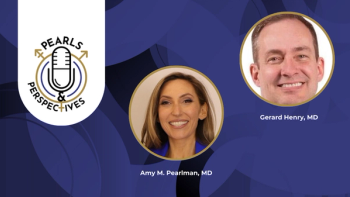
Experts highlight the importance of mentorship, sexual health education for trainees
"Mentorship plays a huge role, and as someone who's interested in academics in the future, I think it's important to remember the influence that you can have on shaping young minds," says Niki Parikh, MD, MBA, MSBA.
In this video, Mayo Clinic Urology investigators Niki Parikh, MD, MBA, MSBA, Tobias S. Köhler, MD, MPH, and Matthew J. Ziegelmann, MD, share take-home messages from the study, “Perceived influence of medical school sexual health education on specialty selection in young urologists specializing in sexual dysfunction.”
Video Transcript:
What are the key take-home messages from this study?
Köhler: Number one, be a good mentor, be enthusiastic, show people why you love what you do, and often, it will be infectious. That's true, probably for all subspecialties. It's also so important that it becomes normalized that we ask patients about their sexual health. [It's] important in their quality of life and can unveil underlying conditions. There's a hunger, a craving from the medical students here that we taught to ask many excellent questions and learn as much as they can. They feel very unprepared. I think we're doing a huge disservice if we send them out into the real world to take care of patients, and all of a sudden, they get faced with something they've never even considered or thought of. Of course, if you're not comfortable talking about sex, you're not going to ask about it. And the patients are going to feel the same way. So then ultimately, they're going to suffer in silence and not want to bring it up because they sense that probably you're nervous about it as well.
Ziegelmann: The other thing I would add to that is just the idea that sexual health curriculum in general is very expansive. We know there are topics pertaining to sexual dysfunction like erectile dysfunction, loss of libido and sexual desire, Peyronie's disease, for example. But there's a lot of topics that I think are even less well covered, and this is another opportunity for us, pertaining to gender, pertaining to sexually transmitted infections, pertaining to safe sex, and sex throughout the lifespan. These are all important topics that most of our survey respondents did not recall as part of their medical school curriculum and great opportunities for us to innovate in this space. I think urologists are the right people to do that. We need to get more involved in medical school education and get people excited about this.
Köhler: There's also a huge opportunity and gap in meeting a patient's needs when it comes to the difference between male and female sexual dysfunction. If you look at the number of drugs available for male clinical problems with sex versus females, the score is something like 30 to 2, something like that. It's crazy. Research in female sexual dysfunction is essentially in its infancy. So, there's a lot of catching up to do there, and that begins in medical school to illustrate this gross difference in understanding and pursuit of good treatments.
Parikh: I think the study is also important for younger individuals. I was influenced to go into sexual medicine, andrology, and fertility because of the people in front of us. Doctors Ziegelmann, Dr. Köhler, Dr. Helo. Mentorship plays a huge role, and as someone who's interested in academics in the future, I think it's important to remember the influence that you can have on shaping young minds, whether it's medical students or residents, and just remembering the impact that you can have and that you can really change someone's career and drive and focus. I think keeping that in mind is extremely important, especially for younger individuals who are looking into academics.
Is there anything else that you’d like to add?
Köhler: If you're interested in getting more involved in sexual health research or don't know where to turn, Sexual Medicine Society of North America (SMSNA) is a strong partner of the AUA and has a lot of online resources, lectures, medical student/resident fellowship information, so just go to the website. You can become a member for free as a medical student and as a resident and get involved if you're passionate about this. We'd love to have you join us.
This transcription has been edited for clarity.
Newsletter
Stay current with the latest urology news and practice-changing insights — sign up now for the essential updates every urologist needs.






